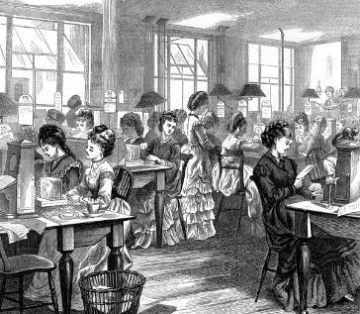Isa Craig Knox
The full resource is FREE to all registered users of the website
If you are not already registered you can sign up for FREE website access to download the full resource.

- Born: 1831
- Died: 1903
- Occupation: journalist and writer
- Claims to fame: one of the early female writers on a newspaper
Her background
Isa was born in Edinburgh, the only child of John Craig, a glove-maker who died when she was young. She left school aged ten, probably to find work to help her grandmother. Isa could read and write and she began to write regular verses and poems. These got the attention of newspaper, and Isa began to contribute regularly, writing articles for other journalists. Isa’s work on newspapers and journals led to a new job as assistant secretary and literary assistant to George Hastings of the National Association for the Promotion of Social Science (NAPSS).
As a campaigner
In 1859, Isa joined the committee of the newly formed Ladies’ Sanitary Association, which was formed by NAPSS to improve sanitary conditions in the homes of the poor. Isa co-founded the Telegraph School, with the aim of teaching women how to operate this new technology so that they might more easily get jobs. In 1862, she became a member of the committee to fight for women to be able to go to university. The following year, she wrote an article on slavery. Isa was also among a list of contributors in 1865 to a collection of poems called ‘Poems: an offering to Lancashire’. All the proceeds from the sale of the poems went to the cotton workers of Lancashire to help them in their financial distress. In 1866, Isa married John Knox and the couple had at least one child. She continued to publish works, although she retired from paid work upon marriage. In 1889, Isa signed the Declaration in Favour of Women’s Suffrage, but was not involved with other activities.
Glossary
- NAPSS – an influential organisation that discussed the social issues of the day, including health, education and women’s rights, and which often advised the government
- Telegraph – early communication machines
Questions
- Why did Isa write articles for other people at The Scotsman newspaper?
- Why might Isa have stopped her activities after she married?
Useful resources
- Elizabeth Crawford, The Women’s Suffrage Movement: a reference guide, 1866–1928 (Routledge, 1999)
